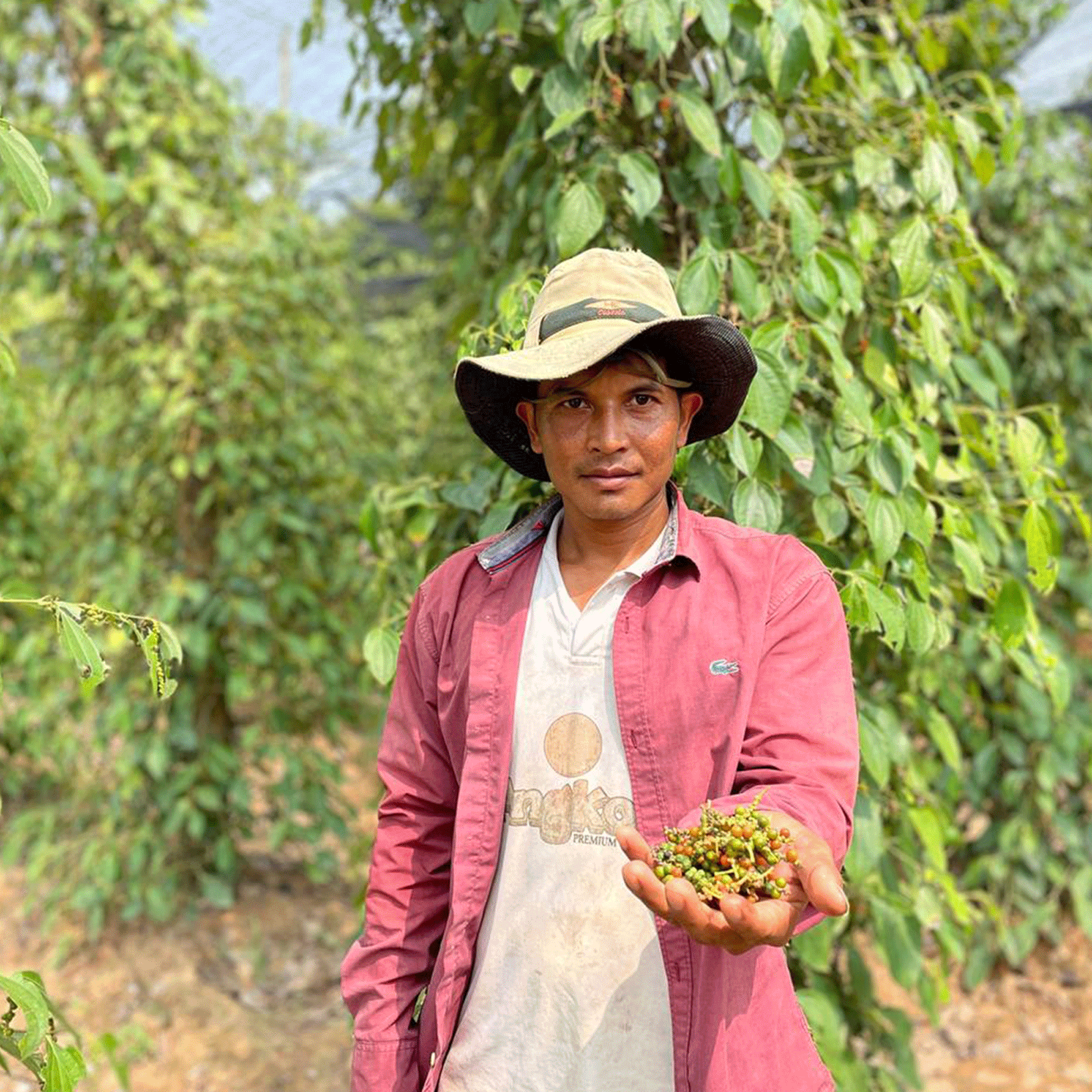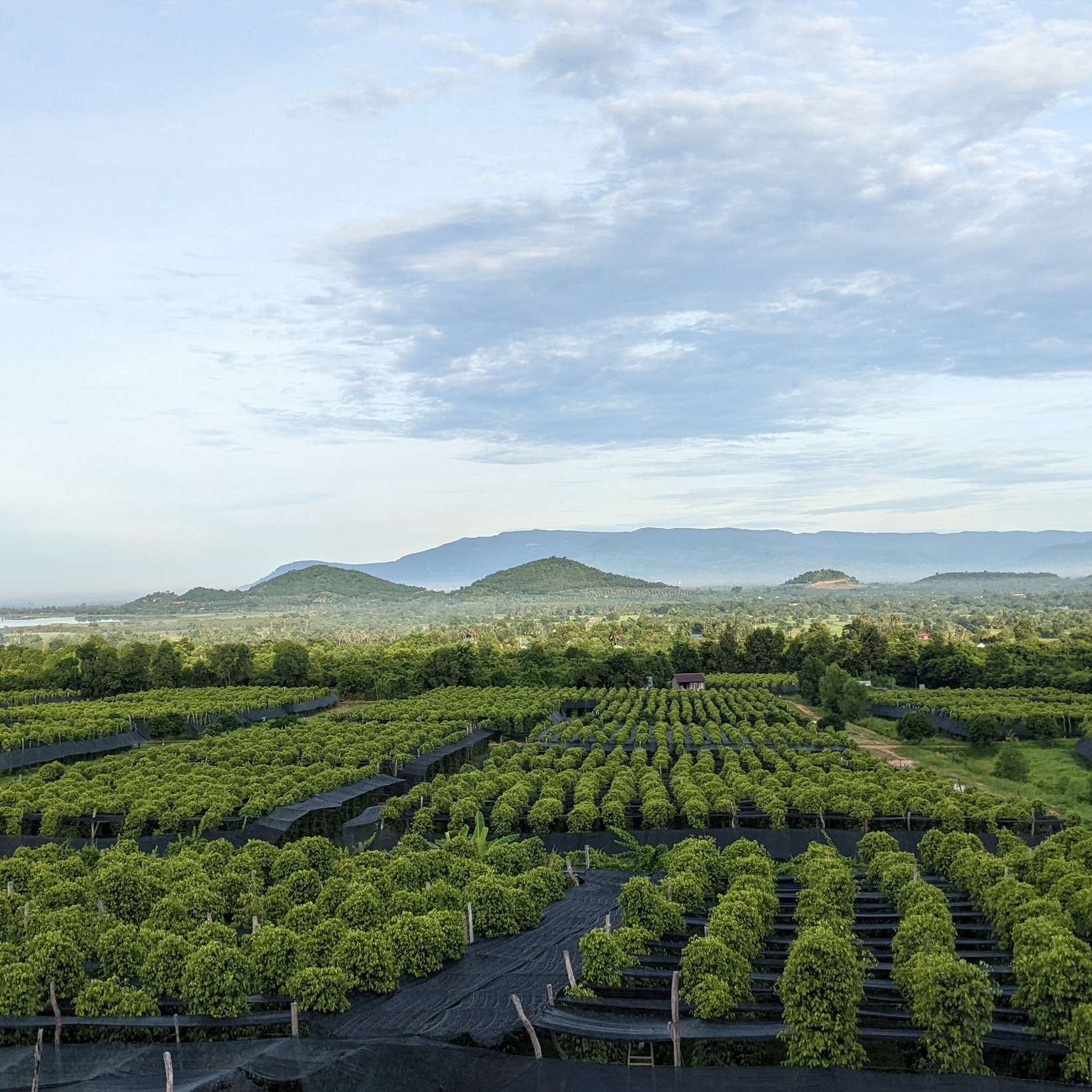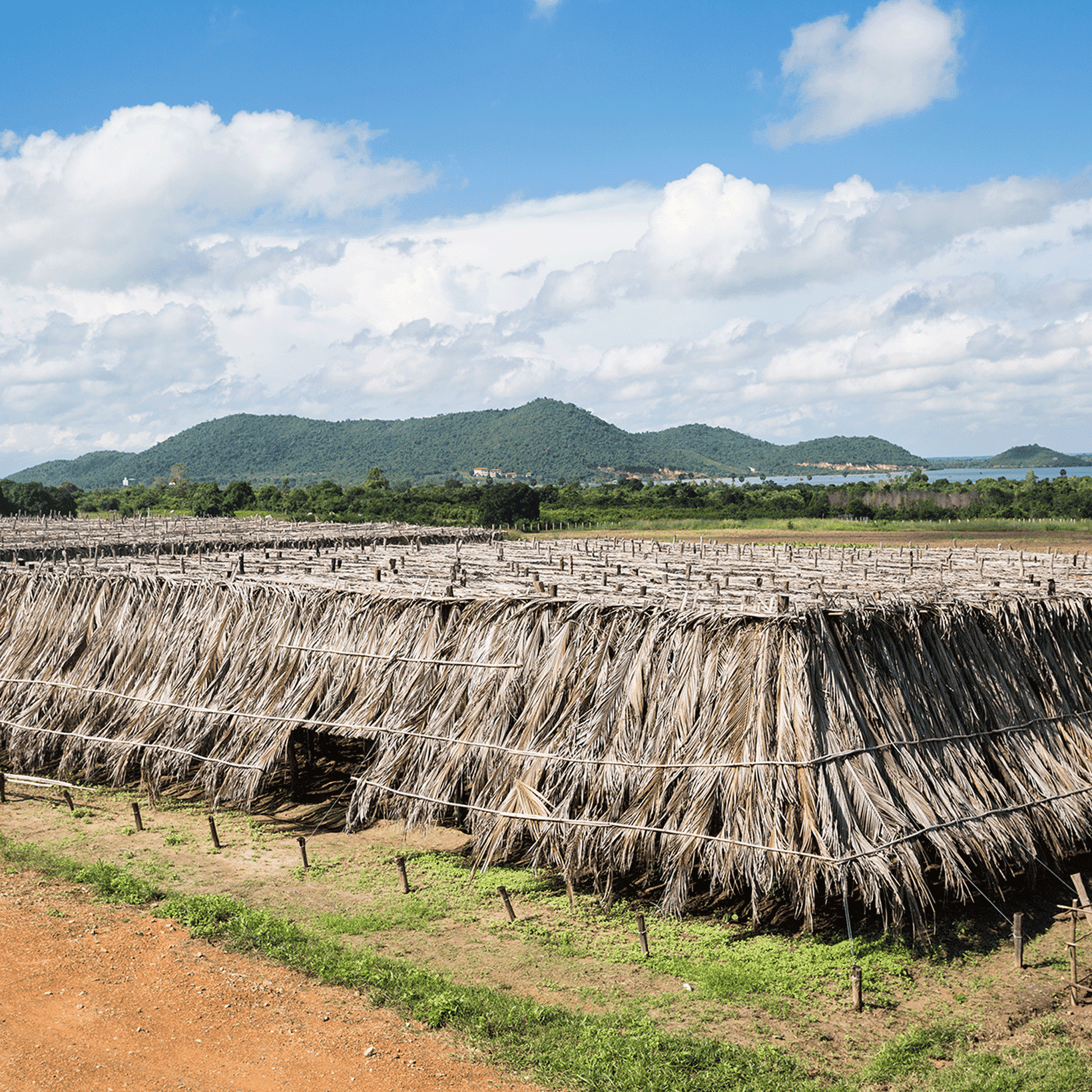
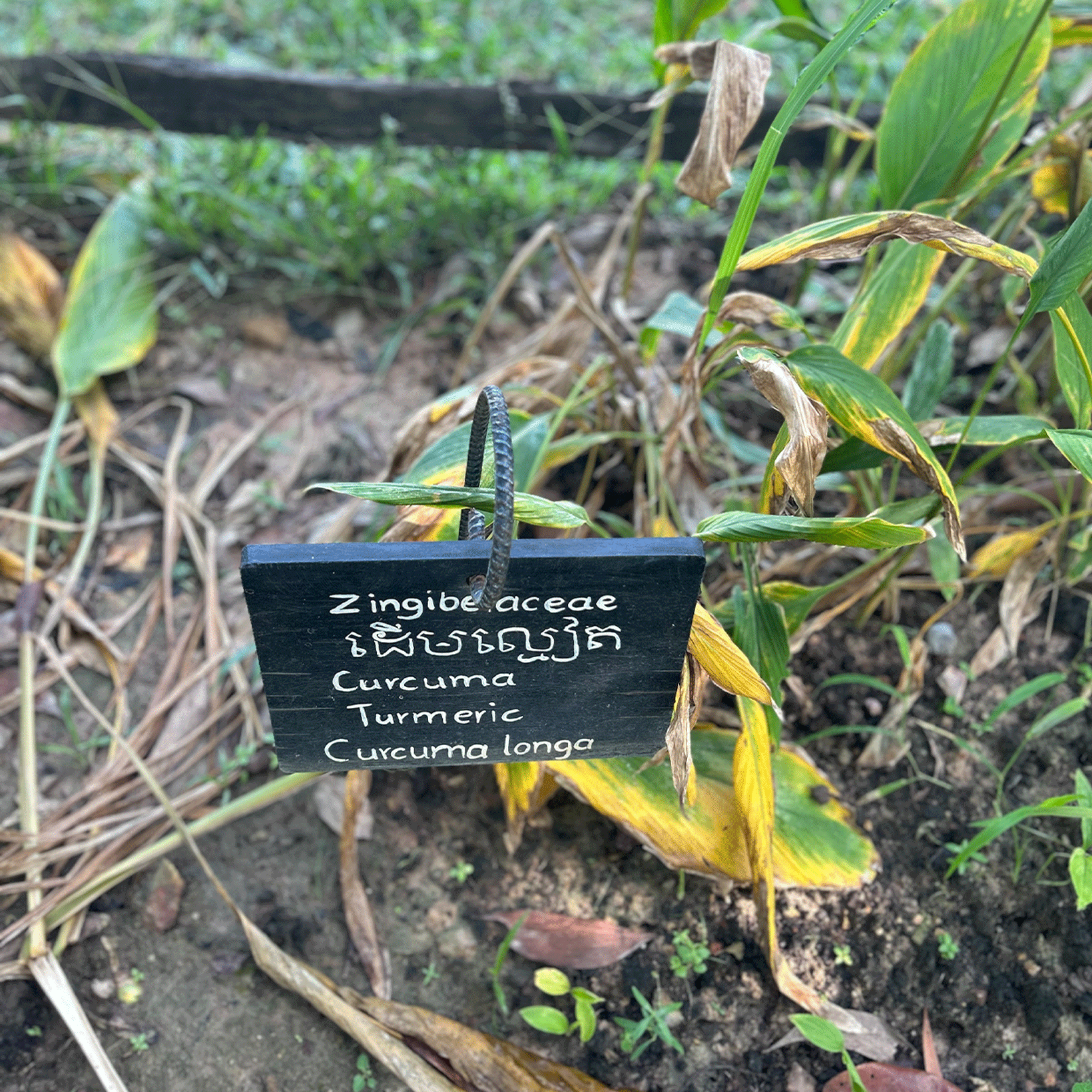
The link between sustainable agriculture and protecting the environment
Why and how to use natural fertilisers?
The use of natural fertilisers aligns with a sustainable and eco-friendly approach, particularly in organic farming and in line with fair trade principles. The cultivation of Kampot pepper follows the standards of the Kampot Pepper PGI (Protected Geographical Indication), using traditional and organic methods that maintain soil balance while ensuring high-quality production.
Natural fertilisers play a key role in maintaining soil fertility by providing essential nutrients without the use of chemical products. These methods help improve soil structure, encourage biodiversity, and reduce erosion, all while respecting available natural resources. Ensuring the proper pH balance of the soil is a priority in sustainable farming. An annual supply of nutrients, applied after the harvest, prepares plants like the perennial vines of Kampot pepper for the next growing season.
One of the cornerstones of organic farming is crop rotation. This practice, applied every two years, allows annual crops to benefit from regenerated soil. Sowing legumes, for example, naturally enriches the soil with nitrogen, improving its quality without the need for chemical fertilisers.
This sustainable approach ensures high-quality agricultural production while preserving natural resources and protecting the environment.
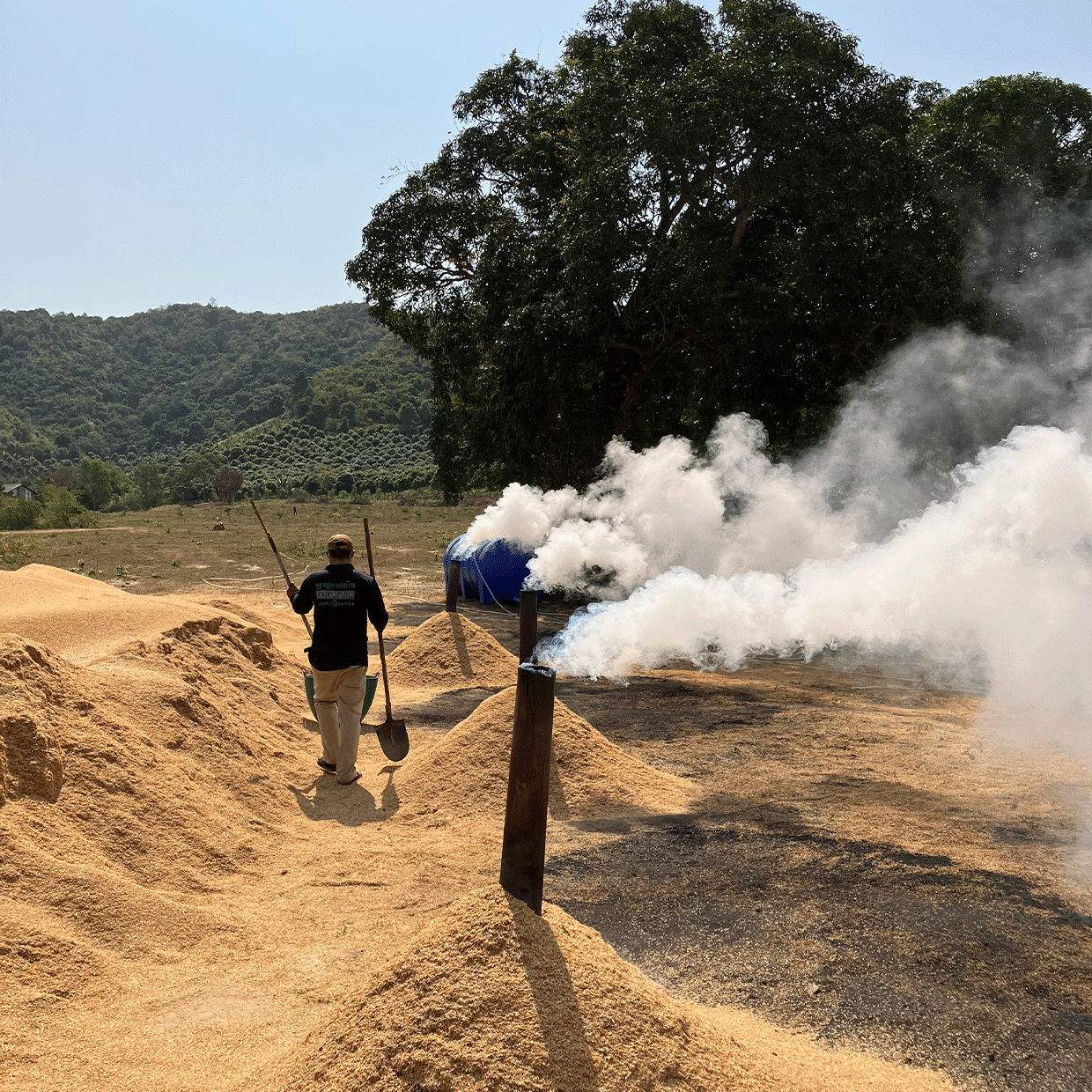
What natural fertilisers does Kampot pepper need?
Pepper plants are delicate and require a balanced mix of nutrients known as NPK, consisting of the following elements in proportions specific to pepper cultivation:
-
Nitrogen (N)
-
Phosphorus (P)
-
Potassium (K)
These elements are vital for plant growth, each playing a distinct role in their development. Nitrogen promotes leaf growth, phosphorus stimulates root and flower development, while potassium strengthens the plant’s resistance to diseases and enhances fruit quality.
It is also important that the soil is rich in organic matter, with a sufficient supply of calcium to maintain a pH level between 5.5 and 7.0.
For Kampot pepper, these essential nutrients come from dried cow manure, bat guano, burned and ground cow bones, and burned rice husks. These natural materials are mixed and applied annually at the base of each pepper plant. This provides the plant with the nutrients it needs to grow and thrive.

Actions to tackle climate change
Since 2013, we have observed significant climate changes in the Kampot region in southern Cambodia. Prolonged dry seasons with increasingly intense heat and no rainfall for months, followed by rainy seasons with sometimes heavy downpours and violent storms. Extreme weather events, such as the heatwave in September 2023, caused flowers and pepper bunches to fall from the plants, leading to a significant loss of that year’s production.
In response to these challenges, a number of measures have been implemented to protect the plants. We have reinforced plant coverings to shield them from extreme heat and developed green ground cover.
This green cover offers multiple benefits: it encourages the development of deep roots that draw nutrients into the soil, improves soil structure and organic matter, and fosters the growth of beneficial microorganisms that enhance the soil’s natural fertility.
The cover also provides natural protection against soil erosion and helps maintain higher moisture levels during the dry season.
Source : Climate Change in Cambodia: A Growing Concern
Why Implement an agroforestry and permaculture programme?
Implementing an agroforestry and permaculture programme helps preserve the natural ecosystem while enhancing the sustainability of agricultural practices. These sustainable practices are essential for the production of Kampot pepper and other spices, ensuring a balance between agricultural production and respect for nature.
We have also included a tree-planting project as part of this programme, with a variety of species being planted to protect the natural ecosystem and preserve biodiversity in the surrounding hills and on the plantation itself.
Sustainable resource management is at the heart of this programme, especially water management. Water is a vital resource for any agricultural operation. In line with organic farming principles, natural reservoirs and retention basins have been dug in different parts of the plantation to collect rainwater during the wet season. This allows us to water the plants during the dry season, ensuring year-round self-sufficiency.
Ecologic compost
Compost is a source of nutrients that improves the organic matter in soils. At the plantation, we have implemented a 3R programme:
- Reduce
- Reuse
- Recycle our waste
Kitchen waste, agricultural waste, and garden waste are stored under a shelter, providing a valuable source of material for our compost. This helps enrich our soil and improves its structure.
How to share these best practices with the family farms in our cooperative?
As a certified organic and fair-trade company, it is our role to share these best practices with the family farms in our cooperative. These farms are regularly informed and trained on responsible and sustainable farming practices. This positive approach allows us to welcome new farms into our organic certification programme each year.
Organic farming plays a key role in the long-term fight against climate change by adopting sustainable practices such as improving soil health, using resilient crops, and optimising water management.
By integrating regenerative farming techniques and promoting biodiversity, we aim to adapt as best as we can to changing climate conditions and build a more resilient and sustainable agricultural future.
